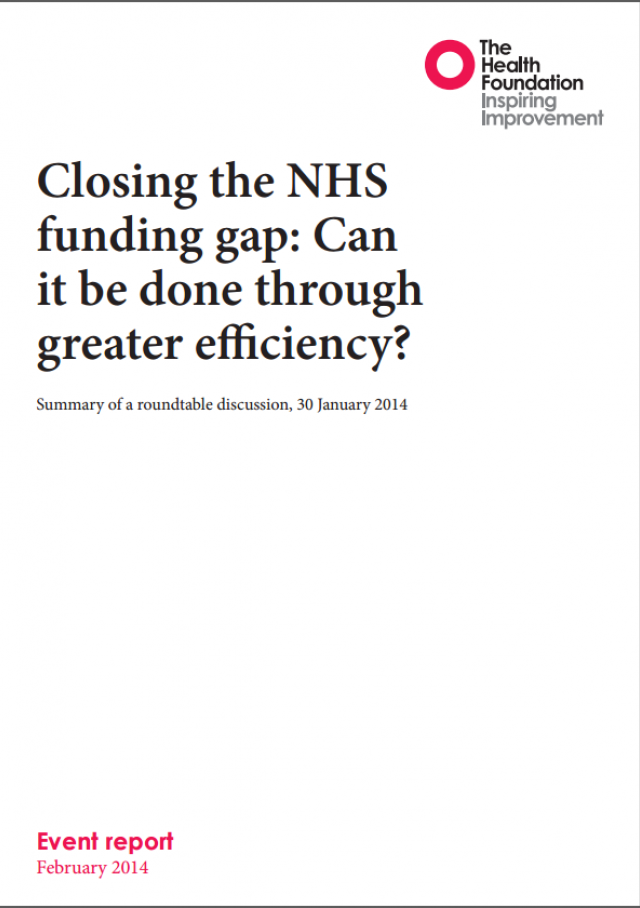Closing the NHS funding gap: Can it be done through greater efficiency? Summary of a roundtable discussion, 30 January 2014
February 2014

Key points
In 2014, we brought together senior health sector leaders to consider whether the NHS can close the £30bn funding gap through greater efficiency. The key points from the presentations and discussions on the day:
- The extent of the £30bn financial gap was accepted, but it may be too optimistic if the NHS budget is not protected in future years.
- The NHS in England does not appear particularly ‘flabby’ next to health systems in other developed countries.
- The current financial squeeze might affect the system’s ability to achieve the service transformation required to close the £30bn funding gap by 2021. Asking the system to deliver radical, transformational change may be unrealistic given the day-to-day pressures to deliver, but the financial squeeze may prompt the action needed.
- Proper alignment between quality, efficiency and funding decisions is vital. Short-term interventions to improve quality must not increase the scale of the financial challenge to come.
- There are a number of cultural barriers which make innovation more challenging. The system rarely tackles failure well and there is very little recognition or reward for success. As a sector, the health system could be much better at ‘spread’ of good and innovative practice.
- Radical transformation of services is required.
- The centre should play a bold, supportive and facilitative role and avoid the perception of micro-management.
- The time has come for an honest conversation with the public about what the NHS might look like over the next decade and how that vision might be funded.
- There are signs of optimism despite the financial challenges. For example, the prominent focus on integration and person-centred care could bring about positive changes.
The discussion was stimulated by Monitor’s publication last year of Closing the NHS funding gap: how to get better value health care for patients which highlighted the financial challenges facing the NHS in England.
The report identified four key areas where there were opportunities to make significant productivity gains across the NHS by 2021 and beyond:
- improving productivity within existing services
- delivering the right care in the right setting
- developing new ways of delivering care
- allocating spending more rationally.
While the original intention had been to focus the roundtable discussion around the 2021 challenge, it quickly became clear that there was a more immediate hurdle to clear first – the financial pressures facing the system in 2014/15 and 2015/16.
The report also summarises some potential areas of focus to support the NHS to deliver improved efficiency in both the short and medium term.
Further reading
Work with us
We look for talented and passionate individuals as everyone at the Health Foundation has an important role to play.
View current vacanciesThe Q community
Q is an initiative connecting people with improvement expertise across the UK.
Find out more

